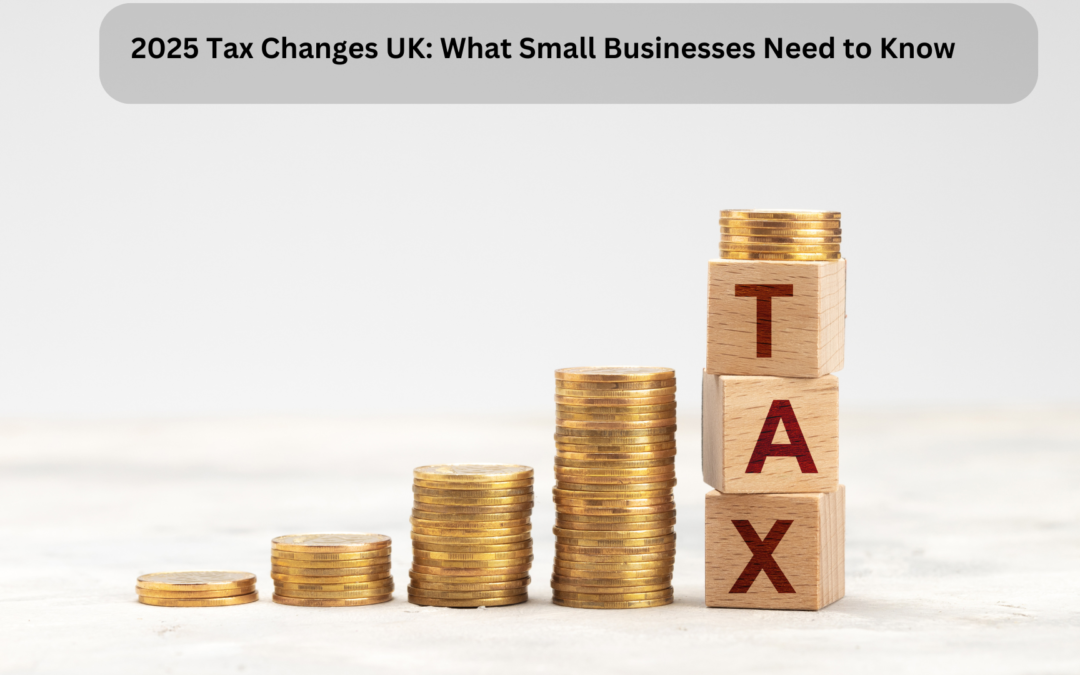2025 Tax Changes UK: What Small Businesses Need to Know
As we enter 2025, UK tax laws are evolving, and small businesses need to stay informed to avoid penalties and take advantage of potential savings. In this guide, we’ll break down the key tax changes affecting small businesses and how you can prepare.
- Corporation Tax Updates
The corporation tax rate remains at 25% for businesses with profits over £250,000, while small businesses with profits under £50,000 continue to pay the lower 19% rate. If your profits fall between these thresholds, marginal relief applies, reducing your tax burden.
Tip: Review your financials early in the year and consider tax planning strategies to keep your tax liability as low as possible.
- VAT Threshold and Changes
The VAT registration threshold is increasing from £85,000 to £90,000 in April 2025. This means businesses with annual turnover below £90,000 won’t need to register for VAT, reducing administrative burdens.
Tip: If you’re near the threshold, consider the VAT Flat Rate Scheme to simplify your VAT payments and potentially save money.
- Making Tax Digital (MTD) Updates
From April 2025, all businesses, including sole traders earning over £30,000, must comply with Making Tax Digital (MTD) for Income Tax Self-Assessment (ITSA). This means using HMRC-approved accounting software to submit tax records.
Tip: If you’re not already using digital accounting software, start transitioning now to avoid last-minute compliance issues.
- Changes to Dividend Tax Rates
The tax-free dividend allowance is reducing from £1,000 to £500 in April 2025. Dividend tax rates remain:
- 8.75% for basic rate taxpayers
- 33.75% for higher rate taxpayers
- 39.35% for additional rate taxpayers
Tip: If you pay yourself through dividends, review your remuneration strategy with our team at Greystone Accountants to ensure tax efficient structure is in place.
- National Insurance Contributions (NICs) Adjustments
From January 2025, the self-employed Class 2 NICs will be abolished, reducing costs for freelancers and small business owners. Class 4 NICs remain at 9% for profits between £12,570 – £50,270, and 2% for profits above that threshold.
Tip: If you’re self-employed, ensure you continue making voluntary contributions if needed to protect your state pension entitlement.
- Super Deduction Ending – What’s Next?
The Super Deduction (which allowed businesses to claim 130% capital allowances on equipment) ended in March 2023. However, Full Expensing remains available in 2025, allowing businesses to deduct 100% of qualifying investments in plant and machinery.
Tip: If you’re planning to invest in equipment, take advantage of Full Expensing while it lasts.
Final Thoughts: Get Ahead of 2025 Tax Changes
Staying ahead of tax changes can save your business thousands of pounds. Reviewing your tax strategy now can help you minimise liabilities and ensure compliance.
Need expert advice? Our team of expert small business accountants specialise in small business tax planning. Book a free consultation today!


Recent Comments